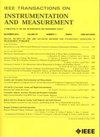计算预算受限情况下基于传感器的人类活动识别通用多级深度学习框架
IF 5.6
2区 工程技术
Q1 ENGINEERING, ELECTRICAL & ELECTRONIC
IEEE Transactions on Instrumentation and Measurement
Pub Date : 2024-10-16
DOI:10.1109/TIM.2024.3481549
引用次数: 0
摘要
近年来,基于传感器的人类活动识别(HAR)广泛采用了滑动窗口,这是因为滑动窗口易于实现。在本文中,受窗口中并非所有时间间隔都与活动相关这一事实的启发,我们提出了一种名为 MS-HAR 的新型多阶段人类活动识别框架,该框架通过实施一个顺序决策程序来逐步处理一系列相对较小的时间间隔,即减少的输入,这些输入通过强化学习从原始窗口中自动裁剪出来。这样的设计自然有利于运行时的动态推理,一旦网络对其当前预测获得足够高的置信度,就可以在任意时间终止推理。与大多数直接处理整个窗口的现有方法相比,我们的方法允许通过设置置信度阈值来非常精确地在线控制计算预算,这就迫使网络在有限的计算预算下,在 "困难 "的活动上花费更多的计算量,而在 "容易 "的活动上花费更少的计算量。在四个基准 HAR 数据集(包括 WISMD、PAMAP2、USC-HAD 和一个弱标记数据集)上进行的广泛实验表明,我们的方法比竞争性基线方法更加灵活高效。特别是,我们提出的框架具有通用性,因为它与大多数主流骨干网络兼容。本文章由计算机程序翻译,如有差异,请以英文原文为准。
A General Multistage Deep Learning Framework for Sensor-Based Human Activity Recognition Under Bounded Computational Budget
In recent years, sliding windows have been widely employed for sensor-based human activity recognition (HAR) due to their implementational simplicity. In this article, inspired by the fact that not all time intervals in a window are activity-relevant, we propose a novel multistage HAR framework named MS-HAR by implementing a sequential decision procedure to progressively process a sequence of relatively small intervals, i.e., reduced input, which is automatically cropped from the original window with reinforcement learning. Such a design naturally facilitates dynamic inference at runtime, which may be terminated at an arbitrary time once the network obtains sufficiently high confidence about its current prediction. Compared to most existing works that directly handle the whole window, our method allows for very precisely controlling the computational budget online by setting confidence thresholds, which forces the network to spend more computation on a “difficult” activity while spending less computation on an “easy” activity under a finite computational budget. Extensive experiments on four benchmark HAR datasets consisting of WISMD, PAMAP2, USC-HAD, and one weakly labeled dataset demonstrate that our method is considerably more flexible and efficient than the competitive baselines. Particularly, our proposed framework is general since it is compatible with most mainstream backbone networks.
求助全文
通过发布文献求助,成功后即可免费获取论文全文。
去求助
来源期刊

IEEE Transactions on Instrumentation and Measurement
工程技术-工程:电子与电气
CiteScore
9.00
自引率
23.20%
发文量
1294
审稿时长
3.9 months
期刊介绍:
Papers are sought that address innovative solutions to the development and use of electrical and electronic instruments and equipment to measure, monitor and/or record physical phenomena for the purpose of advancing measurement science, methods, functionality and applications. The scope of these papers may encompass: (1) theory, methodology, and practice of measurement; (2) design, development and evaluation of instrumentation and measurement systems and components used in generating, acquiring, conditioning and processing signals; (3) analysis, representation, display, and preservation of the information obtained from a set of measurements; and (4) scientific and technical support to establishment and maintenance of technical standards in the field of Instrumentation and Measurement.
 求助内容:
求助内容: 应助结果提醒方式:
应助结果提醒方式:


